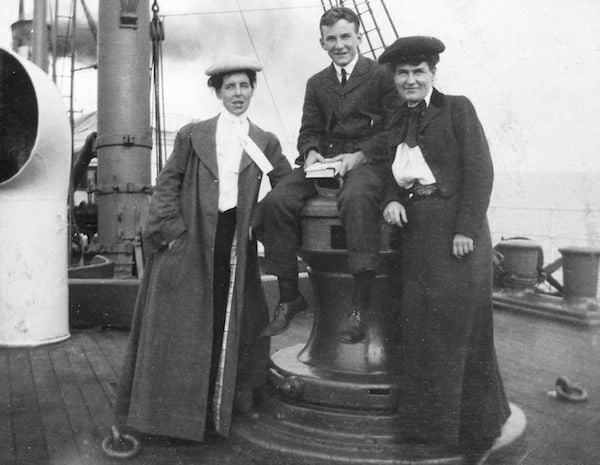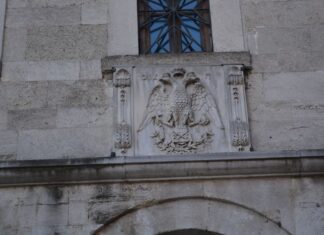The matinee audience was made up chiefly of women. One lost the contour of faces and figures, indeed any effect of line whatever, and there was only the color of bodices past counting, the shimmer of fabrics soft and fine, silky and sheer; red, mauve, pink, blue, lilac, purple, ticru, rose, yellow, cream, and white, all the colors that an impressionist finds in a sunlit landscape, with here and there the dead shadow of a frock coat. My Aunt Georgiana regarded them as though they had been so many daubs of tube-paint on a palette.
Old Maggie
When the musicians came out and took their places, she gave a little stir of anticipation, and looked with quickening interest down over the rail at that invariable grouping, perhaps the first wholly familiar thing that had greeted her eye since she had left old Maggie and her weakling calf. I could feel how all those details sank into her soul, for I had not forgotten how they had sunk into mine when I came fresh from plowing forever and forever between green aisles of corn, where, as in a treadmill, one might walk from daybreak to dusk without perceiving a shadow of change.
The clean profiles of the musicians, the gloss of their linen, the dull black of their coats, the beloved shapes of the instruments, the patches of yellow light on the smooth, varnished bellies of the `cellos and the bass viols in the rear, the restless, wind- tossed forest of fiddle necks and bows I recalled how, in the first orchestra I ever heard, those long bow-strokes seemed to draw the heart out of me, as a conjurer`s stick reels out yards of paper ribbon from a hat.
The first number was the Tannhauser overture. When the horns drew out the first strain of the “Pilgrims` Chorus,” Aunt Georgiana clutched my coat sleeve.
Then it was I first realized that for her this broke u silence of thirty years. With the battle between the two motives, with the frenzy of the Venusberg theme and its rippings of strings, there came to me an overwhelming sense of the waste and wear we are so power-less to combat; and I saw again the tall, naked house on the prairie, black and grim as a wooden fortress; the black pond where I had learned to swim, its margin pitted with sun-dried cattle tracks; the rain gullied clay banks about the naked house, the four dwarf ash seedlings where the dish-cloths were always hung to dry before the kitchen door.
The world there was the flat world of the ancients; to the east, a cornfield that stretched to daybreak; to the west, a corral that reached to sunset; between, the conquests of peace, dearer-bought than those of war.
Read More about Rabbi Akiva 1








